Judicial Watch, amici brief in Utah Republican Party v. Spencer Cox, in the Supreme Court of the United States filed November 13, 2018, on writ No. 18-450
No. 18-450
In The
Supreme Court of the United States
Utah REPUBLICAN PARTY, Petitioner,
v.
SPENCER J. Cox, Et AL., Respondents.
On Petition for Writ Certiorari to the United States Court Appeals for the Tenth Circuit

BRIEF AMICI CURIAE JUDICIAL
WATCH, INC. AND ALLIED EDUCATIONAL
FOUNDATION in SUPPORT of PETITIONER
Robert Popper Counsel of Record
Eric Lee
JUDICIAL WATCH, INC.
425 Third Street Washington, 20024
(202) 646-5172 rpopper@judicialwatch.org
Counsel for Amici Curiae
Dated: November 13, 2018

Page i
TABLE of CONTENTS
TABLE AUTHORITIES …… ii
INTERESTS of THE AMICI CURIAE …..1
SUMMARY of ARGUMENT ……2
ARGUMENT ……………..3
I. Tocqueville Believed the Importance Free Private Associations and Foresaw That Governments Would Try Control Them ……6
II.SB 54’s Burden on the First Amendment Associational Rights the Utah Republican Party is Severe ………..11
CONCLUSION ………………16

Page ii
TABLE AUTHORITIES Cases Page(s)
American Comm. Ass’n Douds, 339 U.S. 382 (1950) …………7
Bank of Augusta v. Earle, 38 U.S. 519, 1839 U.S. Lexis 455 (1839).7
Boy Scouts America v. Dale, 530 U.S. 640 (2000) ………….. 11,13
California Democratic Party v. Jones, 530 U.S. 567 (2000)…..11,13,14,15
Citizens Against Rent Control/Coalition for Fair Hous. V. Berkeley, 454 U.S. 290 (1981) ……..12
Clingman v. Beaver, 544 U.S. 581 (2005) …… 11,14
Colo. Republican Fed. Campaign Comm v. FEC, 518 U.S. 604 (1996) ……..14
Eu v. S.F. City Democratic Central Committee, 489 U.S. 214 (1989) … 11,13 Hobby Lobby Stores, Inc. Sebelius, 723 F.3d 1114 (10th Cir. 2013) …..14-15 League Women Voters Minn. v. Ritchie, 819 N.W.2d 636 (Minn. 2012) …….7

Page Iii
NAACP v. Alabama rel. Patterson, 357 U.S. 449 (1958).. …… 12
NAACP v. Claiborne Hardware Co., 458 U.S. 886 (1982) ……………….11-12
Obergefell v. Hodges, 135 Ct. 2584 (2015) …………..7
Roberts v. United States Jaycees, 468 U.S. 609 (1984) ……….. 12,13
State v. Fain, 116 Idaho (Id. 1989) …….7
Tashjian v. Republican Party, U.S. 208 (1986) ………………..13
Utah Republican Party Cox, 885 F.3d 1219 (10th Cir. 2018) ……passim
Utah Republican Party Cox, 892 F.3d 1066 (10th Cir 2018) ……..passim
Wash. State Grange Wash. State Republican Party, 552 U.S. 442 (2008) .. 11,14
Zubik v. Burwell, 136 Ct. 1557 (2016) …. 11
Constitutional Provisions
U.S. CONST. art III, §…….. ….. 5
Statutes
Utah Code 20A-9-101 (SB 54) ……………………… passim
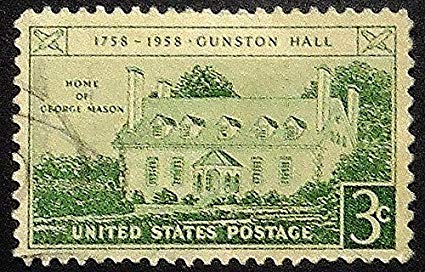
Page iv
Other Authorities
ALEXIS De TOCQUEVILLE, DEMOCRACY in AMERICA (G. Lawrence & J.P. Mayer, ed. trans., 1988) ……………………… passim
ALEXIS De TOCQUEVILLE,’ DEMOCRACY in AMERICA (P. Bradley, ed.1954) ..12
Jason Mazzone, Freedoms Associations, Wash. Rev. 639 (2002) ………….12 ROBERT NISBET, THE QUEST FOR COMMUNITY: STUDY THE ETHICS ORDER AND FREEDOM (1953) ………….10
ROBERT D. PUTNAM, BOWLING ALONE: THE COLLAPSE AND REVIVAL AMERICAN COMMUNITY (2001) ……………10
Utah Republican Party 2015 Constitution art. XII, §1.A- §2.G, . §3.A, http://utah.gop/wp-content /uploads/2015-Party-Constitution.pdf..2
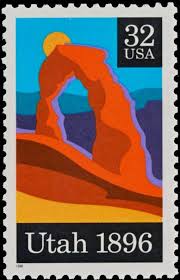
Page 1
INTERESTS THE AMICI CURIAE footnote 1
Judicial Watch, Inc. (Judicial Watch) nonpartisan, public interest organization headquartered Washington, D.C. Founded 1994, Judicial Watch seeks promote accountability, transparency and integrity government, and fidelity the rule of law. The Allied Educational Foundation (AEF) nonprofit charitable and educational foundation based Englewood, New Jersey. Founded 1964, AEF dedicated promoting education diverse areas study.
In furtherance their collective goals, amici file amici curiae briefs on matters they believe are public importance and have appeared either amicus or amici curiae several recent cases before this Court involving election law. See Husted v. Philip Randolph Inst., Sup. Ct. No. 16-980; Gill v. Whitford, Sup. Ct. No. 16-1161; Benisek v. Lamone, Sup. Ct. No. 17-333; North Carolina v. North Carolina State Conf. of the NAACP, Sup. Ct. No. 16-833.
As expressive organizations, amici have legitimate interest this case. The Tenth Circuit’s holding could have profound implications not only for political parties but also for all expressive organizations. Amici assert that review warranted
Footnote 1. Amici state that counsel for party to this case authored this brief whole part; and no person or entity, other than amici and its counsel, made monetary contribution intended to fund the preparation and submission this brief. Amici sought and obtained the consent all parties to the filing of this amici brief more than ten days prior the date was due.
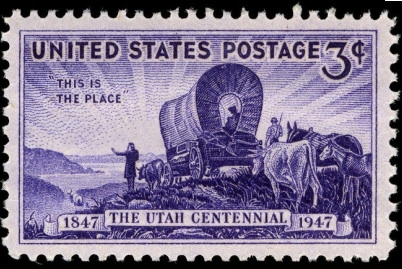
Page 2
By this Court because the Tenth Circuit misapplied the governing standard and this Court’s First Amendment jurisprudence.
INTRODUCTION AND
SUMMARY ARGUMENT
Until 2014, the Utah Republican Party selected its candidates for nomination solely through local caucus and convention system. The local caucus allowed Utah Republican Party members elect delegates oh represent them at the nominating convention. Those delegates then selected candidates to appear on the general election ballot. See Utah Republican Party 2015 Constitution art. XII, §1.A-C, §2.G, §3.A. footnote 2 The caucus procedure and subsequent nominating convention was the sole method the Utah Republican Party employed choose its candidates for office.
That procedure was changed, however, not the Utah Republican Party, but the Utah Legislature, when it enacted the ‘’Either or Both Provision’’ of SB 54 into law. That provision ‘’require[s] parties to allow candidates to qualify for the primary ballot through either the nominating convention gathering or by signatures, both.’’ Utah Republican Party v. Cox, 885 F.3d 1219, 1224 (10th Cir. 2018).
A divided panel of the Tenth Circuit found that the Either Both Provision did not violate the Utah
Footnote 2. Available
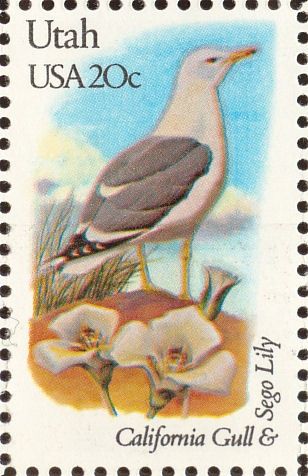
page 3.
Republican Party’s First Amendment right freedom association. Id. at 1237. Relying on dicta and dissenting opinions from this Court, the majority concluded that the Either or Both Provision of SB54, despite fundamentally altering the Utah Republican Party’s governing structure, was not unconstitutional violation the Utah Republican Partys First Amendment associational rights, because its roughly 600,000 registered members only faced a minor burden. Id. 1231-1235.
Amici respectfully submit that this ruling is both dangerous and wrong. It is dangerous because it affords state governments the upper hand in a long-running battle-first identified and described Alexis Tocqueville-between private associations, which are necessary in democratic societies to afford citizens a unifying power against the central authorities, and the central authorities themselves, which oppose private associations for that very reason. The ruling is wrong because it simply ignores the independent associational rights held by political parties, as opposed to their individual members, and because it slights the severe burden those parties imposed by government interference with their structure and organization.
The petition for certiorari should granted.

ARGUMENT
If allowed to stand, the Tenth Circuit’s decision will significantly degrade the associational rights political parties. This result contrary to Supreme Court precedent. It is also bad for our democratic system.
The facts in this case highlight just how poorly associational rights fared below. Petitioner is the Utah Republican Party. As the Tenth Circuit majority acknowledged, the Utah Legislature that adopted SB 54 is ‘’comprised of ‘’overwhelming Republican majorities both the State House and State Senate. Utah Republican Party, 885 F.3d at 1224. In other words, members the Utah Republican Party who could not convince fellow members to adopt the changes incorporated in SB 54 reconvened as legislators, voted their preferences into law, and this way compelled their fellow members accept these changes.
The rationale offered for this party coup was remarkably thin. The State argued that its action was reasonable ‘’regulation furthering the important Utah interests of managing elections in a controlled manner, increasing voter participation, and increasing access the ballot.’’ 885 F.3d 1236. It is hard to know what to make of this string of buzzwords and phrases. How, for example, does the law ‘’manag[e] elections controlled manner’’? What does this mean in context: what is control, why is it good, and how is a primary election more ‘’controlled’’ than a convention election? And even assuming that more members vote in primary elections, which would explain the references above to increased ‘’participation’’ and ‘’access,’’ is it not also plausible that those who run and are elected delegates neighborhood caucuses, and who then attend a party convention, understand local concerns better, and are more dedicated party activists?

But more the point, by what right does the State of Utah claim the authority to inflict its preferences between and among these various choices on the Utah Republican Party, a private political association? The Tenth Circuit’s decision made this outcome possible by a series of legal maneuvers that lowered the standard Respondents had meet to justify the burden on Petitioners associational rights. The Tenth Circuit set the rights of party members against what it described as those of the ‘’party leadership’’ – by which it meant the Party – and then discounted the latter’s rights almost completely. 885 F.3d 1233. Considering only the inconvenience to individual party members, the Tenth Circuit concluded that SB 54’s burden was ‘’minimal.’’ Id. At 1235. Because this was determined to be so, Utah’s regulation could bf justified if it were ‘’reasonable.’’ Id. (citations omitted). The Tenth Circuit could then rely on what it described as ‘’technically dicta’’ – in other words, dicta – from Supreme Court opinions to conclude that SB 54 was reasonable. Footnote 3. Id. At 1231.
Amici wish point out that the Tenth Circuit’s facile approach fails to do justice to a fundamental
Footnote 3. The Tenth Circuit argued that it was ‘’bound Supreme Court dicta almost as firmly as by the Court’s outright holdings, particularly when the dicta is recent and not enfeebled by later statements.’’ 885 F.3d 1231 (citation omitted). But judicial statements about matters that are not at issue are nt better than advisory opinions, which are barred the Constitution. See U.S. CONST. art III, § 2 (‘’judicial Power shall extend’’ to ‘’Cases’’ and ‘’Controversies’’).

Page 6
First Amendment right. As Alexis de Tocqueville discerned almost 180 years ago, free political associations are particularly important in a democratic system like ours, where the tendency for individuals to go their own separate ways. As he also foresaw, governments will tend view private political associations as enemies and will try to restrict their freedom. Amici respectfully submit that the Court plays a vital role in defending these institutions from needless government encroachments and intrusions – like those SB 54 imposes on the Utah Republican Party.
- Tocqueville Believed in the Importance of Free Private Associations and Foresaw That Governments Would Try Control Them.
After touring this country in 1831, French lawyer, philosopher, and writer Alexis de Tocqueville published his observations. The result was a ‘’masterpiece,’’ a ‘’global interpretation of the meaning of American civilization.’’ ALEXIS de TOCQUEVILLE, DEMOCRACY in AMERICA ix(G. Lawrence & J.P. Mayer ed. trans. 1988) (1835-1840) (foreword by J.P. Mayer). A combination of ‘’legal historian,’’ ‘’brilliant anthropologist,’’ ‘’classic sociologist, fully equipped with the knowledge his time’’ (id. At xii), Tocqueville elaborated a comprehensive analysis of American law, politics, and society. DEMOCRACY in AMERICA was instantly recognized as an important classic. From the time it was first published until the present day, Tocqueville has been cited in hundreds of state and federal judicial opinions, and has been cited dozens times by, or before, this Court. Footnote 4.
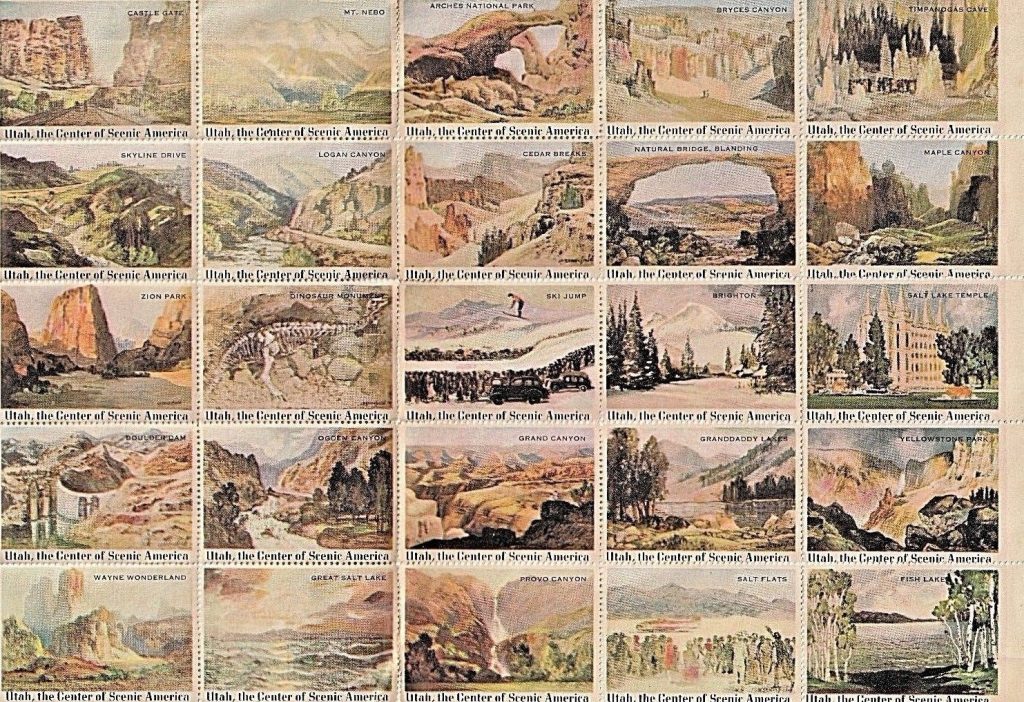
Tocqueville was one of the first to identify the tendency of those who enjoy political equality to live in greater social isolation from those around them. As ‘’equality spreads there are more and more people’’ whose material resources allow them ‘’to look after their own needs.’’ TOCQUEVILLE, supra, at 508. As they ‘’owe no man anything,’’ they hardly expect anything from anybody. They form the habit of thinking of themselves in isolation …’’ Id.
The political problem arising from this tendency, Tocqueville noted, was that this outcome is exactly what the enemies of liberty would prefer. ‘’Despotism … sees the isolation of men the best guarantee of its own permanence.’’ Id. At 509. Paradoxically, the ‘’vices originating in despotism are precisely those favored by equality. The two opposites fatally complete and support each other.’’ Id. At 509-10. ‘’Equality puts men side by side without a common link to hold them firm,’’ while ‘’[d]espotism raises
Footnote 4. See Bank of Augusta v. Earle, U.S. 519, 1839 U.S. LEXJS 455, ***140 (1839) (counsel citing ‘’learned foreign lawyer, M. de Tocqueville’’); see, e.g., Obergefell v. Hodges, 135 Ct. 2584, 2601 (2015); American Comm. Assn v. Douds, 339 U.S. 382, 415 (1950) (Frankfurter, J., concurring) (citing ‘’the perceptive de Tocqueville’’); League Women Voters Minn. v.Ritchie, 819 N.W.2d 636, 675 (Minn. 2012) (Tocqueville was one the nineteenth century’s most prominent and astute observers life and politics in the United States); State v. Fain, 116 Idaho 82, 103 (Id. 1989) (Tocqueville ‘’understood and appreciated democracy in America with keener insight than any other observer of the Nineteenth Century’’)
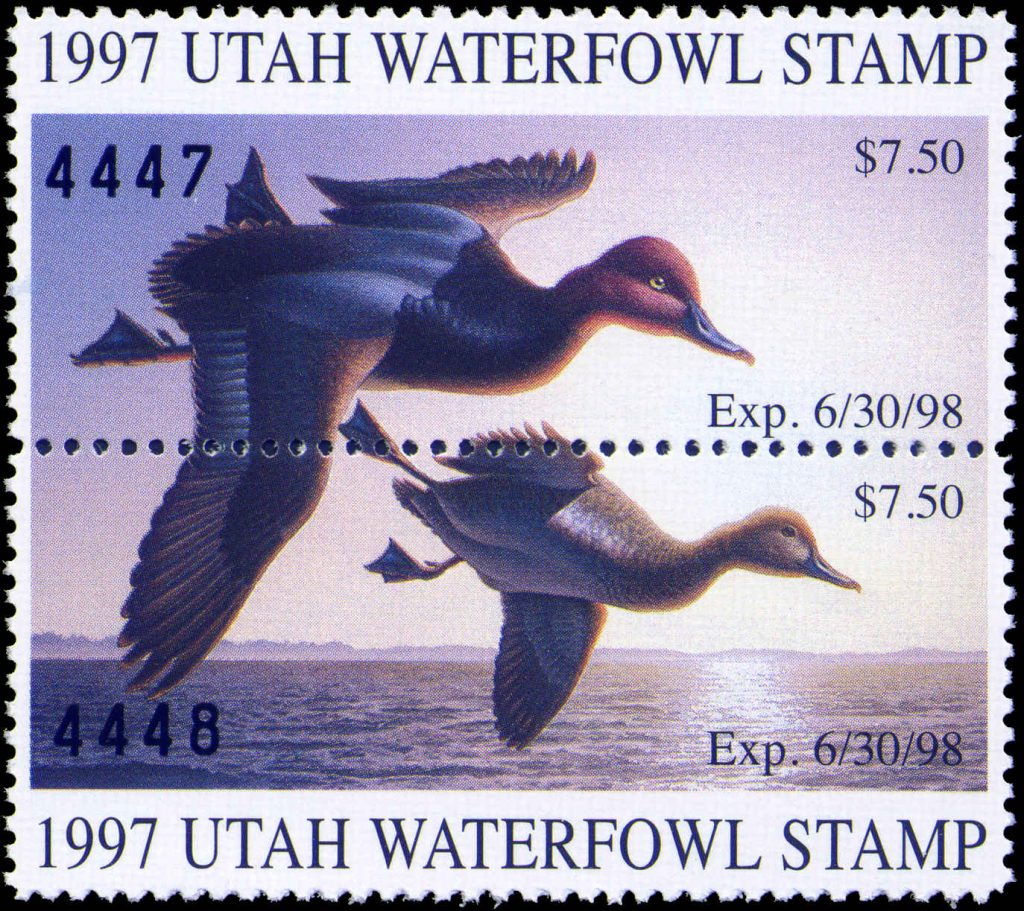
Page 8
Barriers to keep them apart. Id. 510. For this reason, ‘’[d]espotism, dangerous all times, is . . . particularly to be feared in ages of democracy. Id.
Yet in Tocqueville’s view, American society had evolved institutions that could counter the dangerous tendency toward social atomization-private associations. Tocqueville observed that ‘’Americans of all ages, all stations in life, and all types of disposition are forever forming associations.’’ Id. At 513. There are ‘’commercial and industrial associations’’ but also ‘’others of a thousand different types-religious, moral, serious, futile, very general and very limited, immensely large and very minute. Americans combine to give fetes, found seminaries, build churches, distribute books, and send missionaries to the antipodes’’. Id. These associations include what would call ideological political groups. If Americans ‘’want to proclaim a great truth or propagate some feeling, conceive sentiment idea that they want produce before the world, they seek each other out, and when found, they unite. Id. At 513, 516.
These associations combat the tendency towards social isolation. A ‘’political association draws a lot people . . .out of their own circle; however much differences . . . may naturally keep them apart, it brings them together … Id.at 521. With this unity comes political strength. Thenceforth they are no longer isolated individuals, but a power conspicuous from the distance whose actions serve as a example; when it speaks, men listen. Id. 516.

Page 9
Tocqueville argued, however, that other factors made the position of private political associations democratic societies more less precarious. One of the great themes of DEMOCRACY in AMERICA is the natural tendency democratic societies toward political centralization. This is due to a number of causes, including the democratic preference for equality easier to perceive, understand, and defend than liberty; a growing intolerance of any perception of inequality, which makes it harder to accept or even imagine ‘’secondary powers’’ below the level the central government; and the central authority’s encouragement these tendencies pursuit its own interests. Footnote 5
The end result is that the central government comes to see political associations as rivals. ‘’Among democratic peoples only through association that the citizens can raise any resistance to the central power. The latter therefore always looks with disfavor on associations that are not under its thumb.’’ Id. At 686. Nor may private political associations depend on public support. ‘’[T]he citizens often have secret feelings fear and jealousy
‘
Footnote 6 Tocquevilles analysis of political centralization is extended and complex and only a partial summary of his conclusions are provided here. See generally TOCQUEVILLE, supra, 503 (Vol. II, Part II, ch. 1- Why Democratic Nations Show More Ardent and Enduring Love for Equality Than for Liberty); at 668 (Part IV, ch. 2.‘’Why the Ideas of Democratic Peoples About Government Naturally Favor the Concentration of Political Power); at 671 (ch.3 – ‘’How Both the Feelings and the Thoughts of Democratic Nations are in Accord in Concentrating Political Power); at 690 (ch. 6 – ‘’What Sort of Despotism Democratic Nations Have to Fear’’).

Page 10
toward just these associations of which they stand in such great need, and this prevents them from defending them,’’ because association’s power ‘’is almost regarded as a dangerous privilege.’’ Id. Aat 686-687. Thus, although political associations are particularly necessary for democratic societies, they are often hard to establish and maintain within those societies.
When all men are alike, it is easy to establish single, all-powerful government; mere instinct will do that. But a great deal of intelligence, knowledge, and skill are required in these circumstances to organize and maintain secondary powers and to create, among independent but individually weak citizens, free associations which can resist tyranny … Id. At 676.
Tocqueville’s predictions often seem eerily prescient. It is certainly true here. The danger of social isolation in a democratic society is by now a perennial theme scholars and observers. The growth in the size and power of the federal government has been dramatic since Tocqueville’s time that even he might be surprised. And this case is only the latest to reach this Court in which the
Footnote 6. See, e.g., ROBERT D. PUTNAM, BOWLING ALONE – THE COLLAPSE AND REVIVAL of AMERICAN ComMUNITY (2001); ROBERT NISBET, THE QUEST FOR COMMUNITY: A STUDY in THE ETHICS of ORDER AND FREEDOM (1953).

Page 11
dispute concerns government effort to regulate private political [footnote 7] or civil associations. [Footnote 8] With respect to political parties in particular, Judge Tymkovich recognized,’’[i]n important ways, the party system is the weakest it has ever been-a sobering reality given parties’ importance to our republic’s stability.’’ Utah Republican Party Cox, 892 F.3d 1066, 1072 (10th Cir 2018) (Tymkovich, C.J., concurring in denial of rehearing en bane).
For the reasons Tocqueville elaborated, there is much more at stake than the Tenth Circuit recognized. The associational rights of the Utah Republican Party should not have been reckoned as insignificant as that Court suggested, and Petitioner is correct to argue that the Party’s important associational rights exist independently those its members. Amici respectfully submit that the Court should take this case affirm these principles.

- SB 54’s Burden on the First Amendment Associational Rights of the Utah Republican Party is Severe.
The right freely associate is ‘’almost as inalienable in its nature as the right of personal liberty. No legislator can attack it without impairing the foundations of society.’’ NAACP v. Claiborne
v.
Footnote 7. See, e.g., Wash. State Grange Wash. State Republican Party, 552 U.S. 442 (2008); Clingman v. Beaver, 544 U.S. 581 (2005); California Democratic Party v. Jones, 530 U.S. 567 (2000); Eu v. S.F. City Democratic Central Committee, 489 U.S. 214 (1989).
Footnote 8. See, e.g., Zubik v. Burwell, 136 S.Ct. 1557 (2016); Boy Scouts of America v. Dale, 530 U.S. 640 (2000).
Page 13

ciate with others in pursuit of a wide variety of political, social, economic, educational, religious, and cultural ends.’’). Each group, regardless of its message, has a right to associate without government interference or control. This right ‘’is crucial in preventing the majority from imposing its views on groups that would rather express other, perhaps unpopular, ideas.’’ Dale, 530 U.S. 647-648 (citation omitted); Jones, 530 U.S. 574-575 (‘’Freedom of association would prove an empty guarantee if associations could not limit control over their decisions to those who share the interests and persuasions that underlie the associations being.) (citation omitted); see also TOCQUEVILLE, supra, at 514 (if ‘’inhabitants of democratic countries had neither the right nor the taste for uniting for political objects, their independence would’’ be at risk).
In particular, government actions that seek to limit this popular sovereignty through ‘’intrusion[s] into the internal structure or affairs of an association . . . may unconstitutionally burden this freedom. Dale, 530 U.S. at 648, citing Jaycees, 468 U.S. 623; Tashjian v. Republican Party, 479 U.S. 208, 224 (the freedom of association protects a party’s determination … of the structure which best allows it to pursue its political goals.’’); Eu, 489 U.S. 230 (discretion in how to organize itself, conduct its affairs, and select its leaders’’ are among an association’s First Amendment rights). When a state changes political party’s governing structure, forcing the party to associate with those whom it disagrees, ‘’[s]uch forced association has the likely
Page 14
outcome-indeed the intended outcome-of changing the parties’ message.’’ 530 U.S. at 581-582. This Court has found ‘’no heavier burden on a political party’s associational freedom.’’ Id. 582. ‘’Election regulations that impose a severe burden on associational rights are subject to strict scrutiny and are upheld ‘’only if they are narrowly tailored to serve a compelling state interest.’’ Wash. State Republican Party, 552 U.S. 451, citing Clingman, 544 U.S. at 586 (internal quotations omitted).
The Tenth Circuit majority thus erred finding that the Either or Both Provision of SB 54 ‘’does not impose a severe burden’’ on the Utah Republican Party. 885 F.3d at 1235. SB 54 inflicts such a burden by compelling the Utah Republican Party to change its governing structure and allow candidates or the ballot who did not participate the Utah Republican Party’s mandated caucus system. Utah Republican Party, 885 F.3d 1235. The Tenth Circuit was also wrong to slight the associational rights of the Party itself, in distinction from the associational rights of its individual members. The Party is an expressive organization, governed by its own charter. Both the Party and its members have their own First Amendment rights. Colo. Republican Fed. Campaign Comm. V. FEC, 518 U.S. 604, 616 (1996) (‘’independent expression of a political party’s views is ‘core’ First Amendment activity no less than the independent expression of individuals, candidates, other political committees) (citation omitted); Hobby Lobby Stores, Inc. v. Sebelius, 723 F.3d 1114, 1148-1150 (10th Cir. 2013), aff’d sub nom. Burwell Hobby Lobby Stores, Inc. 134 Ct. 2751 (2014) (‘’the civil
Page 15
liberties of an organization … must be considered distinct from the civil liberties of any particular member’); Jones, 530 U.S. at 582 (referring to a ‘’party’s associational freedom’’) (emphasis added).
The Tenth Circuits decision ultimately sanctioned significant expansion of states’ power to intrude the internal affairs political parties. The ruling threatens to impair parties ability function as the truly free and independent associations that Tocqueville saw as so necessary for American democracy. Unless this Court intervenes, ‘’[f]reedom of association would prove an empty guarantee,’’ Jones, 530 U.S. at 575, and the independence every political party’s governing structure would be at risk.
Page 16
CONCLUSION
For the foregoing reasons, amici respectfully request that the Court grant the petition for a writ of certiorari.
Respectfully submitted,
Robert Popper
Counsel of Record
Eric Lee
JUDICIAL WATCH, INC.
425 Third Street SW
Washington, 20024
(202) 646-5172
Counsel for Amici Curiae November 13, 2018
Number of Pages: 20
Date Created: November 16, 2018
Date Uploaded to the Library: November 16, 2018
Tags:Cox, associations, tocqueville, Partys, Utah, Tenth, selection, democracy, candidate, SCOTUS, Republican, Amici, democratic, PARTY, political, amendment, rights, jones, Circuit, American, Supreme Court
Disclaimer: The author of each article published on this web site owns his or her own words. The opinions, beliefs and viewpoints expressed by the various authors and forum participants on this site do not necessarily reflect the opinions, beliefs and viewpoints of Utah Standard News or official policies of the USN and may actually reflect positions that USN actively opposes. No claim in public domain or fair use. © Edmunds Tucker. UTopiAH are trade marks of the author. Utopia was written in 1515 by Sir Thomas More, Chancellor of England.
Utah Standard News depends on the support of readers like you.
Good Journalism requires time, expertise, passion and money. We know you appreciate the coverage here. Please help us to continue as an alternative news website by becoming a subscriber or making a donation. To learn more about our subscription options or make a donation, click here.
To Advertise on UtahStandardNews.com, please contact us at: ed@utahstandardnews.com.


Comments - No Responses to “Judicial Watch, amici brief in Utah Republican Party v. Spencer Cox, in the Supreme Court of the United States filed November 13, 2018, on writ No. 18-450”
Sure is empty down here...